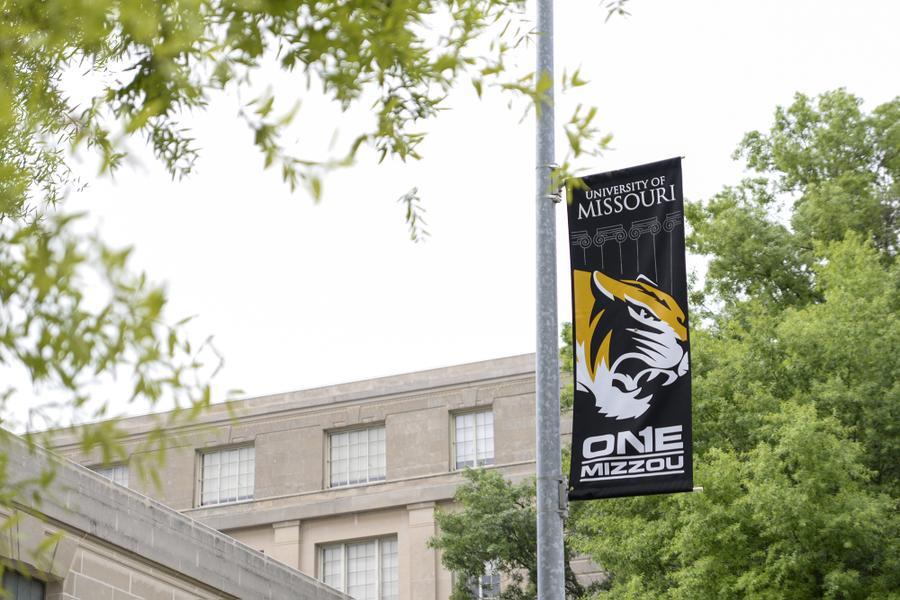Last December, a coalition of student leaders presented a Call to Action to MU administrators. It would eventually spell the end of the use of the One Mizzou slogan in marketing and promotional materials. One Mizzou began as a diversity initiative in 2011 under then-chancellor Brady Deaton.
Ellen de Graffenreid, vice chancellor for marketing and communications, said One Mizzou morphed into a slogan of sorts, adopted by the athletic department to promote MU on a broader, national market.
In April, administrators announced that One Mizzou would be phased out. Student Affairs and the Missouri Students Association have stopped using the phrase, according to administrators’ Call to Action progress report.
“Individual departments and programs using One Mizzou should transition away from the concept, effective immediately,” reads the [university’s graphic identity standards.](http://identity.missouri.edu/graphic-identity-standards/index.php)
While One Mizzou was originally conceived as a campus diversity initiative, it has since become a marketing slogan. In May 2011, the MU Athletic department [used the phrase](http://www.mutigers.com/genrel/052411aad.html) in a campaign to help raise funds for the Joplin tornado that killed more than 100 people.
In the last four years, departments around MU have used the phrase for marketing. First, there was a [song](https://www.youtube.com/watch?v=ga32-gbgCP8), which was followed by 30-second TV spot and then [an Athletics commercial](https://www.youtube.com/watch?v=5PuZyB9cuXQ). For some students, the continued use of the phrase diluted the campaign’s initial purpose, Kwon said.
Young Kwon was among the students who presented the Call to Action to administrators. She’s the former co-chairwoman of Four Front, a council of minority student groups that aims to make MU’s campus more inclusive. When Kwon started her position as Four Front co-chairwoman, she noticed that the meaning of One Mizzou as a diversity initiative had become muddled.
“Several presidents of student governments who sat on One Mizzou Council at the time were losing focus and understanding of One Mizzou,” Kwon said.
In Kwon’s opinion, the One Mizzou diversity initiative brought student governments together, as well as bringing speakers like Maya Angelou and Laverne Cox to campus.
The One Mizzou campaign began in response to several 2011 on-campus hate crimes. In 2010, students [spread cotton balls](https://www.themaneater.com/stories/2010/2/27/cotton-strewn-front-black-culture-center/) outside of the Gaines/Oldham Black Culture Center two weeks before 850 black students came to MU for the 2011 Big XII Conference on black student government.
Deaton called the unveiling of One Mizzou his [“proudest moment”](https://www.themaneater.com/stories/2011/4/8/one-mizzou-diversity-campaign-unveiled/) as Chancellor.
Now, MU is looking to build a marketing strategy for a new campaign since April’s announcement. Degraffenreid’s team has been working to develop a new campaign this summer. They began market research with students during the spring semester and plan to talk to alumni and others outside the university this summer.
Degraffenreid said she wants MU’s new marketing campaign to build a distinct brand through an integrated marketing program. She said she wants it to be more developed and go beyond One Mizzou’s slogan-driven model.
“Research will really tell us what direction we need to go in,” Graffenreid said. “It will tell us what the new campaign might need to look like.”
Junior Michael Nowicki said he thought equal rights should remain an area of emphasis for MU, regardless of what specific direction the new campaign ends up taking.
“I think the forefront for the next campaign should be including everyone,” he said. “Equality is for all.”
Director of Athletics Mack Rhoades and Deputy Director of Athletics Wren Baker will be involved in the development of the new campaign, Degraffenreid said.
She said Rhoades and Baker are as devoted to developing a new, clearer marketing message as she is.
Degraffenreid said she is excited to unveil a more focused campaign to MU’s campus and beyond.
“With a new chancellor there’s always going to be transitions,” Degraffenreid said. “It’s a good time to discontinue something that has not had a lot of clarity into having a single meaning for all of our audiences.”














